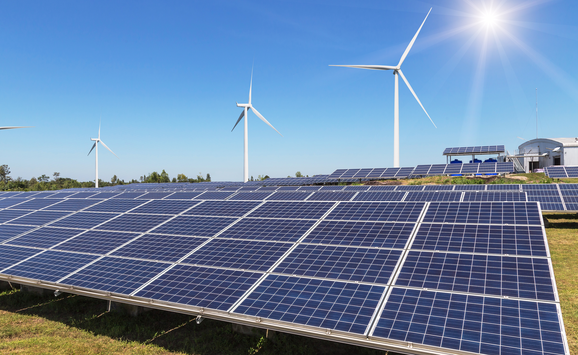To hold down oil prices and protect American consumers, both candidates for the presidency want to lower the country's dependence on foreign oil.
Both have called for energy independence, which would mean reducing oil imports to zero.
While there are many similarities in the policies that the two candidates propose, they have drawn a sharp difference in emphasis. President Bush would look first to increases in domestic oil production to cut imports. Senator Kerry would rely chiefly on conservation and development of renewable sources.
Neither is likely to have a major effect on oil imports or prices in the short run --- which, in the context of a presidential campaign, means four years.
|
The American economy currently consumes a little over 20 million barrels of oil a day. Of that, more than 12 million is imported. (A barrel is 42 gallons.) And of that 20 million barrels a day, two-thirds is used for transportation --- gasoline, diesel fuel and jet fuel. For many stationary uses of oil there are substitutes --- like natural gas for home heating, or coal to generate electricity. But, so far, there is no satisfactory and commercially viable substitute for oil to fuel cars, trucks, railroad locomotives and planes. Swinging the huge American transportation system to other fuels would take massive investments and time measured in decades, not years. |
 |
In the short term, most economists think that the most effective way to cut American demand for oil would be a stiff tax on it. Most politicians say that a heavy tax on oil or gasoline would be deeply unpopular, and would never get through Congress.
The result is that making short-term energy policy has become a search for second-best solutions.
President Bush supports drilling for oil in the Arctic National Wildlife Refuge, arguing that it could produce up to 1 million barrels of oil a day. That would put more oil on the market, but it would arrive only about a decade from now. By then, U.S. oil imports are forecast to rise from the present 12 million barrels a day to about 16 million barrels a day. More significantly, total world oil consumption is likely to have risen from the present 80 million barrels a day to perhaps 100 million barrels a day. The oil from the wildlife refuge, one per cent of the world's supply, could scarcely be expected to have a decisive influence on prices.
Senator Kerry calls for higher fuel efficiency standards for cars. But past experience has showed that because higher gasoline mileage makes it cheaper to drive, it encourages people to drive more. There may be some saving of gasoline, but it would be quite limited.
President Bush would continue working on a North American energy partnership. That could bring a measure of insurance from disruptions in deliveries from more volatile regions like the Middle East. But the Canadians and Mexicans are unlikely to sell us oil at less than the world price. The market is global and, in regard to price, it doesn't matter where the oil comes from.
|
Both candidates call for greater use of ethanol, which can be made from corn and other crops to substitute for gasoline. Senator Kerry proposes to increase production of renewable fuels like ethanol by 5 billion gallons a year over the next decade. Five billion gallons sounds like a lot --- but the country is currently burning 140 billion gallons of gasoline a year. Both candidates pledge to push the development of technologies that could keep cars and trucks rolling without oil. The likeliest candidate currently seems to be a fuel cell fed by hydrogen. But by most estimates it will be a couple of decades before hydrogen can be a serious competitor on the highway. It's entirely right to start making investments now in the policies that will pay off in the 2020s. But what will happen in the meantime?T he pattern of recent decades is likely to continue. World economic growth results in rising demand for oil, which means rising prices. They rise until they begin to interfere with growth. Then demand for oil slows, or even drops. Prices fall --- and economic growth picks up again. The underlying cause of the most recent jump in prices is strong growth in demand for oil in the United States and in China. |
|
Neither candidate has made oil a major issue in this campaign, because the alternatives are not attractive. The popular steps for short-term improvements won't make much difference in that global cycle of price spikes that threaten economic growth. The policies that could make a significant difference have pay-offs that lie far down the road, well beyond the horizon of a presidential campaign.
![]()
Further Reading on the RFF Web Site:
| Surging Gasoline Prices: A Longer Perspective Needed RFF Web Feature April 13, 2004Joel Darmstadter |
||
| How Should Policy Makers Respond to Growing U.S. Oil Import Dependence? RFF Web Feature February 6, 2004 RFF senior fellows Ian Parry and Joel Darmstadter for higher energy taxation, as well as for more research and development to diversify the country?s energy sources. |
||
| Rethinking Fossil Fuels: The Necessary Step Toward Practical Climate Policy Resources, Summer 2004 Ray Kopp |
||
| The Economics of Fuel Economy Standards Discussion Paper 03-44 November 2003 Paul R. Portney, Ian Parry, Howard K. Gruenspecht, and Winston Harrington |
||
|
Producing Oil or Reducing Oil: |
||
| International Oil Security: Problems and Policies Issue Brief 02-04 January 2002 Michael Toman |
||











